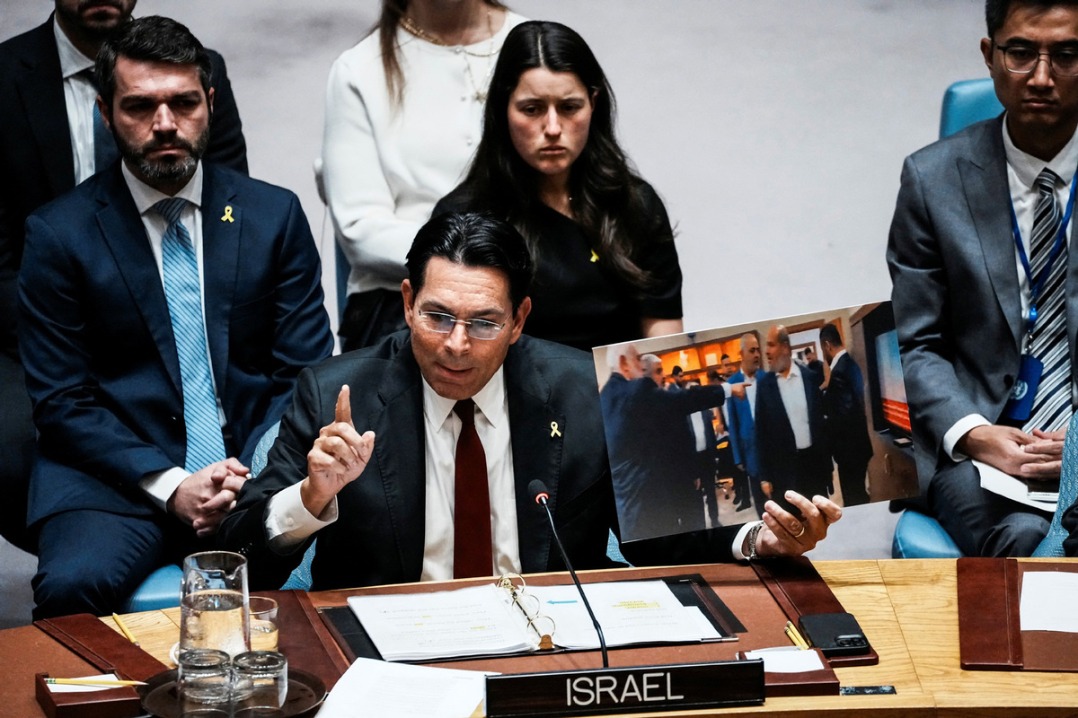UN faces challenging times as it turns 80
Experts call for reform and reinvention to effectively defend multilateralism

This year marks the 80th anniversary of the establishment of the United Nations. While it has achieved breakthroughs in promoting peace, human rights and global development, the organization also faces unprecedented challenges. Experts and senior officials said that the international order it represents remains the broadest consensus of the global community and constitutes a precious source of stability under the current global landscape.
Experts argued that the UN, through institutional reform and functional reinvention, can more effectively defend multilateralism and global governance against the menace of unilateralism.
They also noted that China can serve as a major stabilizing force in supporting the multilateral system.
The UN, born from the ashes of World War II, grew from 51 founding members in 1945 when the UN Charter was signed, to a family of 193 nations today.
However, the anniversary year arrives against the backdrop of rising skepticism.
The United States, for instance, announced its withdrawal from UNESCO, just two years after rejoining it. Since January, the US administration has announced the US withdrawal from a number of international organizations and treaties, including the Paris Agreement, the World Health Organization, and the UN Human Rights Council.
A global survey by the Pew Research Center last September revealed a decline in favorable views for the UN in many parts of the world.
Amid this decline in public credibility and shrinking resources, the UN Secretary-General Antonio Guterres launched the "UN80 Initiative" in March, aiming to reduce costs, simplify procedures, and enhance transparency and accountability.
Liu Tiewa, dean of the Country and Area Studies Academy at Beijing Foreign Studies University, said the urgent need is for the UN to carry out systemic reforms and functional restructuring as the organization reaches its 80th anniversary.
The UN should boost its inclusiveness, improve representation of developing nations, and develop innovative cooperation mechanisms to better defend multilateralism and global governance in the face of rising unilateralism and nationalism, she said.
To address the slow progress toward the 2030 Sustainable Development Goals, particularly regarding global public health and climate change, Liu urged the UN to explore new platforms and mechanisms to enhance policy implementation and ensure continued international cooperation on global public goods even without the support of any major country.
China's contribution
In this shifting landscape, China is a potential stabilizing force, as the nation is already the second-largest contributor to the UN fund and a major contributor to UN troops.
"In promoting multilateralism, China should continue to serve as a 'stabilizer', firmly upholding international law and collaboration, and actively participating in the UN framework reform process," said Liu.
She said that as a staunch supporter of multilateralism, China should help accelerate Security Council reform and advocate for greater representation of developing countries in global governance.
Zhu Jiejin, deputy director of the Center for the Study of the UN and International Organizations at Fudan University, agreed, noting that as a rising power, China, together with other countries, "should make greater contributions to humanity by actively providing public goods".
Amid the political and financial challenges, the core ideal of the UN remains its most powerful asset. Li Wen, chief of mission of the International Organization for Migration in China, reflected on this enduring purpose from her years of service.
She describes the UN as a "noble ideal" born from WWII's devastation — a mechanism where warring parties pledged to abide by international laws and rules to promote peace and cooperation. "High hopes have been pinned on the UN, but then people's confidence gradually waned (since it had failed to solve some problems in reality); still, we need an ideal to guide us."
In her view, the UN's most important functions are to provide guiding ideals, serve as a crucial communication platform to prevent conflicts, and uphold the international rules that prevent global chaos.
Ultimately, however, she said, "The UN is led by its member states, so the UN can only be as strong as member states want it to be … It depends on whether member states are willing to have a strong, leading UN."
yangran1@chinadaily.com.cn

































